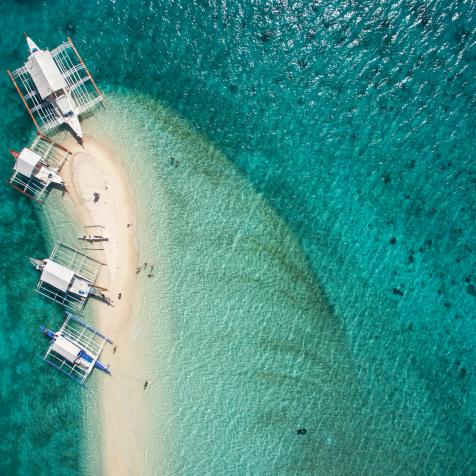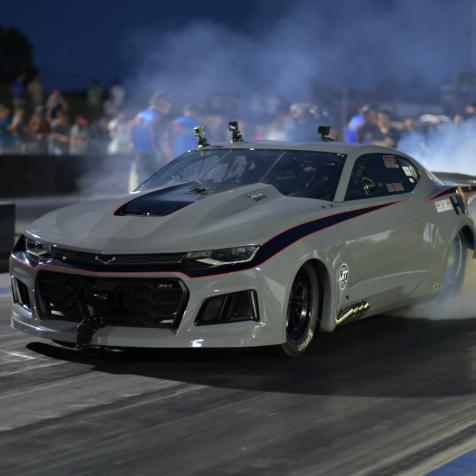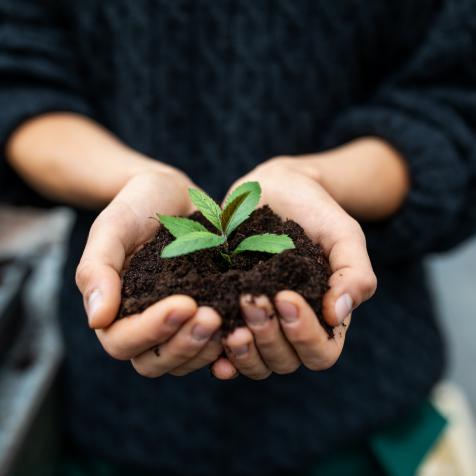
Ami Brown’s Campfire Cake
This cake can be made with or without an oven. Ami Brown brings you this holiday recipe to share with her family every year.
Living in the bush, and on fishing boats in Alaska, there weren't always eggs, so this recipe is perfect for an anytime-anywhere cake. No need to worry about having any fresh dairy items on hand- pantry staples will do the trick! It is especially easy to cook over a campfire. Between Billy and the 7 kids, that’s a lot of birthday cakes, along with holidays and special occasions, so I needed to come up with a way to bake a cake over a campfire, and not in the style of the traditional Dutch Oven. What I do is take a large pot, large enough for a 9" round cake pan to sit inside, with plenty of room around it, place the ring of a canning jar in the center, and then put enough water into the pot to come halfway up the jar lid. Place the cake pan on top of the ring, and cover with a domed lid. By using a domed lid, the water droplets from the steam won't drip onto the top of the cake.
Cook slowly over your campfire, taking care to keep the fire low enough that there is only a small slow boil, instead of a full, roaring boil. If the fire is too hot, it will produce a full roaring boil that will shake the cake pan, causing the cake to fall.
Keep a good eye on the water in the bottom of the pot, so it doesn't boil dry. If the pot boils dry, it gets so hot that the metal starts releasing a smell that will absorb into the cake, and ruin the flavor. If you need to add more water to the pot, be careful of the steam. Also, as you are pouring water into the pot, between the cake pan, and the side of the pot, take care as to not pour any water on the cake- no one likes a soggy bottom!
I can't really say how long to cook the cake, because there are too many variables to determine the required time. This is a situation where the smell test is the best way to know that your cake is probably done. A lot of times, I find that when you can smell the smell of whatever it is that you are baking, that it is usually done, even if your toothpick doesn't come out clean. I discovered this with baking homemade bread, because when I used the "thump test” of the top of the loaf, I couldn't really tell if it was done. However, I noticed when that smell of fresh-baked bread filled the air, it was always cooked perfectly, not tough, or gooey..
When your cake is done, take the pot off of the fire. Remove the lid to let the steam out, and so the cake can cool enough to take it out of the pot. When your cake has cooled completely, put your frosting, and decorations on it as you would any other oven-baked cake.
For those of you who may not have access to open-fire cooking, I have adapted the recipe below to work in a standard oven…but I encourage you to get outside and try things The Bush Way!
Recipe Yield: 2- 8” or 9” round pans OR 1- 13” x 9” oblong pan OR 24 Cupcakes
Ingredients:
- 3 Cups All-Purpose Flour
- 2 Cups Granulated Sugar
- 3/4 cup Cocoa Powder
- 2 Teaspoons Salt
- 2 Teaspoons Baking Soda
- 2 Teaspoons White Vinegar
- 2 Cups Water
- 1/3 Cup cooking Oil
- 2 Teaspoons Vanilla Flavoring
*If you don’t have access to measuring cups and spoons here are some tricks you can use:
1 cup = About the size of your fist
1 TBSP = About the size of your thumb
1 tsp= About the size of your index finger
Instructions:
Preheat your oven to 350 degrees, or if you are cooking over a campfire, gather all of your wood and twigs and build your fire completely before you move on to the next step. In a large mixing bowl, thoroughly combine the flour, sugar, cocoa, salt, and baking soda. Using your hands, make a well in the center of the dry ingredients. Pour the water, cooking oil, vinegar, and vanilla into the well, and mix with whatever utensil you have on hand- preferable a fork. Do not beat the batter but make sure that all of the dry ingredients are evenly mixed into the liquid.
Pour the cake batter evenly into your pan or pot. Cook for 30 - 35 minutes in a 350 degree oven, or until you smell the aroma of a warm chocolate cake. Let it cool, decorate as you please, and enjoy!











































































